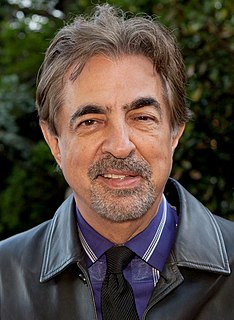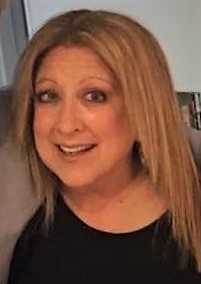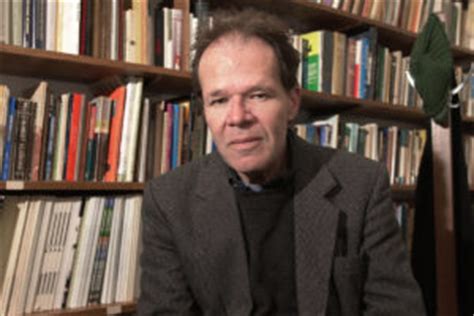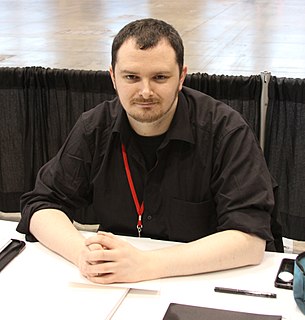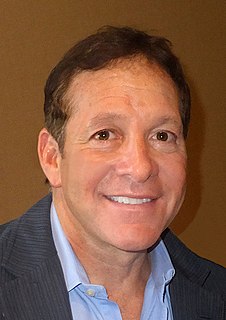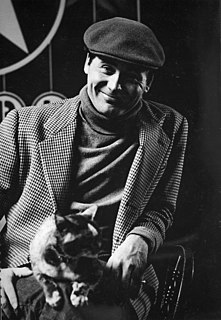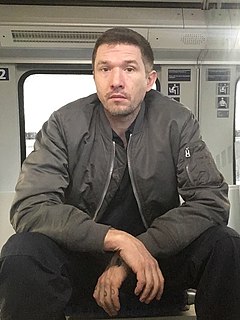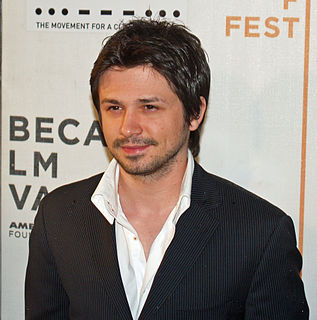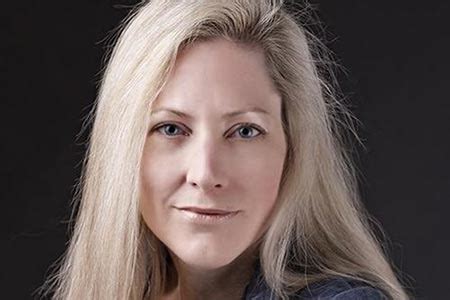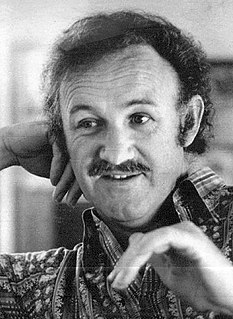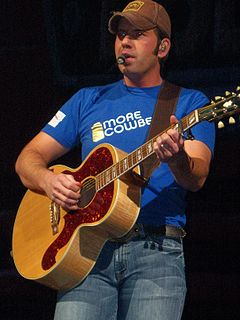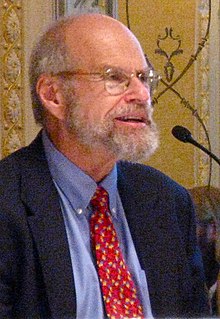Top 1200 Blank Pages Quotes & Sayings - Page 3
Explore popular Blank Pages quotes.
Last updated on November 14, 2024.
I heard of Martin Luther King Jr. when I was 15 years old. I heard of Rosa Parks. And I met Dr. King in 1958 at the age of 18. I met Rosa Parks ... But to pick up a fun comic book - some people used to call them "funny books" - to pick this little book up, it sold for 10 cents, 12 pages or 14 pages? 14 pages I digested. And it inspired me. And I said to myself, "If the people of Montgomery can do this, maybe I can do something. Maybe I can make a contribution."
I have to get three pages done every day, and there's usually a point about 150 pages in where everything falls apart, where all the plans are for naught. The book has become something else, and I have a nervous breakdown, and then I submit to what the book has become, and I keep going, and that's a terrible and then a great time.
I've thought for the last decade or so, the only actual place raw truth was seeping through in newspapers was on the Comics Pages. They were able to pull off intelligent social comment, pure truths not found elsewhere in the news pages, and had the ability to make it all funny, entertaining, and pertinent.
I used to comfort myself with the idea of a book with serrated, detachable pages, so that you could read the thing the way it came and then shuffle the pages, like a giant deck of cards, and read the book in an entirely different order. It would be a different book, wouldn't it? It would be one of infinite books.
A lot of people say I tried to emulate Tupac, but when I look back at my career, we're very different artists. I took pages out of Pac's book, of course, and lots of other rappers - Biggie, Nas - of course you take pages out of those books, but you eventually make it your own thing. And I think I did a good job of that.
There's a page in #2 where I did one of the most interesting pages I've ever drawn. I had to think, "This is a big, blockbuster comic book." You're prepared to be more fan service-y or bombastic. Yet I did one of the most challenging pages I've ever drawn, and it was incredibly satisfying to do that on a project like this [All-Star Batman].
I’ve thought for the last decade or so, the only actual place raw truth was seeping through in newspapers was on the Comics Pages. They were able to pull off intelligent social comment, pure truths not found elsewhere in the news pages, and had the ability to make it all funny, entertaining, and pertinent.
Any kind of writing that's meaningful becomes hard work, so there were times when it would really flow, there were times when I'd get 10 pages a day, and then there were days when I would do three pages. Depends on the thickness of the material. If it's satisfying, it's hard, but it's pretty wonderful.
Once you understand that everybody's going to get connected, a lot of things follow from that. If everybody gets the Internet, they end up with a browser, so they look at web pages - but they can also leave comments, create web pages. They can even host their own server! So not only is everybody consuming, they can also produce.
Be willing to use yourself to get out there and put the company on the market. If you have to make a fool of yourself, make a fool of yourself, but make sure that you end up on the front pages, not the back pages. In time, it's possible that your company will stand out from the crowd, and you'll be successful.
Simon's walls were covered in what looked like pages ripped from a comic book, but when I squinted, I realized they were hand drawn. Some were black-and-white, but most were in full color, everything from character sketches to splash panels to full pages, done in a style that wasn't quite manga, wasn't quite comic book.
It is worth remembering that every writer begins with a naively physical notion of what art is. A book for him or her is not an expression or a series of expressions, but literally a volume, a prism with six rectangular sides made of thin sheets of papers which should include a cover, an inside cover, an epigraph in italics, a preface, nine or ten parts with some verses at the beginning, a table of contents, an ex libris with an hourglass and a Latin phrase, a brief list of errata, some blank pages, a colophon and a publication notice: objects that are known to constitute the art of writing.
I use a computer, but before I begin each new book I keep a notebook. I write down everything that comes to mind during that period before I actually begin. It might take months or weeks. That notebook is my security blanket so that I never have to face a blank screen (or blank page). But I print out often and my best ideas usually come with a pencil in my hand.
For any kind of reading I think better than leaving a blank still a blank, because the mind must receive a degree of enlargement and obtain a little strength by a slight exertion of its thinking powers; besides, even the productions that are only addressed to the imagination, raise the reader a little above the gross gratification of appetites, to which the mind has not given a shade of delicacy.
Life itself, too, is forever turning an infinitely vacant, dispiriting blank side towards man on which nothing appears, any more than it does on a blank canvas. But no matter how vacant and vain, how dead life may appear to be, the man of faith, of energy, of warmth, who knows something, will not be put off so easily.
I thought 'UnSouled' would come in at around 400 pages, but it took 650 pages, and even then I felt like I was rushing the conclusion, so I asked my editor and publisher if I could divide it again. So a sequel became a trilogy, and the trilogy became a tetralogy - although we're not calling it that.
Twenty-two pages is not a lot of space. Believe me. Having written a bazillion comics, I still find myself more often than nine pages into a script and realizing to my horror that I'm only about a quarter of the way through the story I wanted to tell, and the next thing you know, I'm making fresh coffee and tearing up the floorboards to rewrite.
I had tried writing novels for many years, and they always escaped me. For a long time, I thought, 'It's just not in me to write a novel. It's not something I'm able to do.' It seemed like everything I wrote naturally ended at the bottom of page three. A picture book, three pages; an essay, three pages.
What you learn in school is the opposite of what happens in the real world. In school, you're always worried about minimums. You have to reach 20 pages or you have to have so many slides or whatever. Then you get out in the real world and you think, 'I have to have a minimum of 20 pages and 50 slides.
The state of mind of the photographer creating is a blank. I might add that this condition exists only at special times, namely when looking for pictures. -Something keeps him from falling off curbs, down open manholes, into bumpers of skidding trucks while in this condition but goes off duty at other times. . . . This is a very special kind of blank. A very active state of mind really, it is a very receptive state. . .
I figured I could read more than five pages tonight since I'd been deprived for the last couple of days. When I finished the fifteenth, I discovered I was three pages from the next chapter. Might as well end with a clean break. After I was done, I sighed and leaned back, feeling decadent and spent. Pure bliss. Books were a lot less messy than orgasms.
Yes, the fear of its blankness. At the same time, I kind of loved it. Mallarmé was trying to make the page a blank page. But if you're going to make the page a blank page, it's not just the absence of something, it has to become something else. It has to be material, it has to be this thing. I wanted to turn a page into a thing.
I once set myself a deadline: half a chapter a week, 20 minutes a day. The thought froze me instantly, like literary Botox. I returned to my non-schedule: sleeping, writing 20 minutes, and then back to sleep. Breakfast in bed, with juice congealing on the sill: pages and pages began to pour out again.
What you learn in school is the opposite of what happens in the real world. In school, you're always worried about minimums. You have to reach 20 pages or you have to have so many slides or whatever. Then you get out in the real world and you think, 'I have to have a minimum of 20 pages and 50 slides.'
You wind up creating from silence, like painting a picture on a blank canvas that could bring tears to somebody's eyes. As songwriters, our blank canvas is silence. Then we write a song from an idea that can change somebody's life. Songwriting is the closest thing to magic that we could ever experience. That's why I love songwriting.
One thing that helps is to give myself permission to write badly. I tell myself that I'm going to do my five or 10 pages no matter what, and that I can always tear them up the following morning if I want. I'll have lost nothing-writing and tearing up five pages would leave me no further behind than if I took the day off.
Apart from their other characteristics, the outstanding thing about China's 600 million people is that they are “poor and blank”. This may seem a bad thing, but in reality it is a good thing. Poverty gives rise to the desire for changes, the desire for action and the desire for revolution. On a blank sheet of paper free from any mark, the freshest and most beautiful characters can be written; the freshest and most beautiful pictures can be painted.
Several years ago we had an intern who was none too swift. One day he was typing and turned to a secretary and said, "I'm almost out of typing paper. What do I do?" "Just use copier machine paper," she told him. With that, the intern took his last remaining blank piece of paper, put it on the photocopier and proceeded to make five blank copies.
I can see a scene in my head, and when I try to get it down in words on paper, the words are clunky; the scene is not coming across right. So frustrating. And there are days where it keeps flowing. Open the floodgates, and there it is. Pages and pages coming. Where the hell does this all come from? I don't know.
When we first started our internet company, 'China Pages', in 1995, and we were just making home pages for a lot of Chinese companies. We went to the big owners, the big companies, and they didn't want to do it. We go to state-owned companies, and they didn't want to do it. Only the small and medium companies really want to do it.




